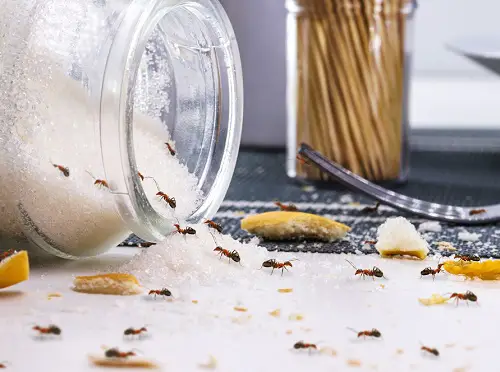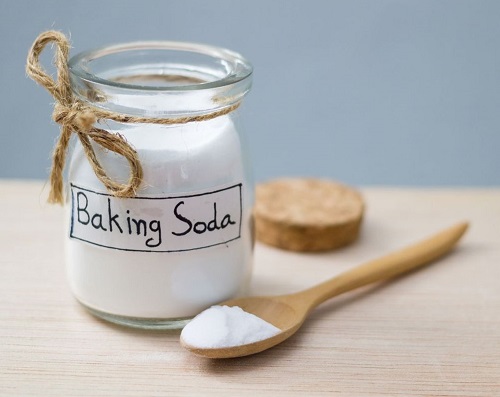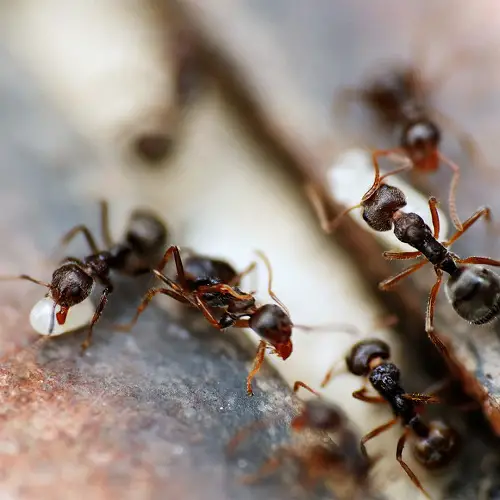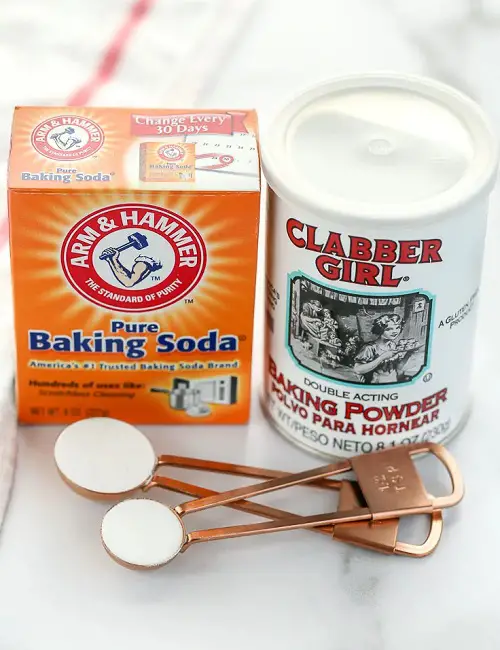Does Baking Soda Kill Ants? If you are curious how these mini creatures react to this powdery bait, keep reading to know!

Nobody likes the presence of ants in their kitchen and pantries. But before using harsh chemical pesticides, you must try some household hacks. Learn about them with us!
Does Baking Soda Kill Ants?
Yes, baking soda can help you get rid of ants. Its secret lies in its alkaline properties. When ants ingest baking soda, it disrupts their internal pH balance, leading to gas buildup and, ultimately, death. Plus, the rough texture of baking soda can damage their exoskeletons.
But before using this on them, you must understand something. Ants don’t really like the taste of baking soda, so getting them to eat it can be tough. Even if some ants do eat it and die, it won’t solve the bigger problem—the ant colony.
So, while it might help with a few ants here and there, it’s not the best solution for a big ant problem. For serious infestations or ones that just won’t go away, it’s better to use stuff made specifically to kill ants, like ant baits, traps, or sprays. These are designed to wipe out the whole colony, which gets rid of the ants for good.
How to Kill Ants with Baking Soda
People often mix baking soda with things ants like, such as sugar or molasses, to make it more appealing to them. Here’s what you can do.
1. Baking Soda and Sugar Bait
Mix equal parts baking soda and granulated sugar in a shallow container and place it near ant trails or foraging areas. The ants will come to consume the sugar and will also eat the baking soda.
2. Baking Soda Dusting
You can also sprinkle a thin layer of baking soda along ant trails, entry points, and nest openings. It’s kind of like a baking soda trap. It might be messy, but it’s worth it!
Pro Tip: Refresh your traps regularly, as the baking soda loses potency over time.
3. Baking Soda Paste
Why don’t you create a baking soda paste? Mix half a cup of baking soda with a few tablespoons of water. Add a bit of water until you get a spreadable paste-like consistency, and then apply it to countertops or windowsills. The ants will consume it and die.
Note: Keep baking soda away from pets and children, and test it on a small area before applying it broadly.
When Baking Soda Is Not Enough
For dealing with persistent ant problems, you’ll need something a lot stronger than baking soda. Then, go for these:
- Use Diatomaceous Earth (DE). It is a natural powder made from algae that dehydrates ants by cutting through their exoskeletons. Apply it directly to the area, wearing a mask and gloves.
- Mix 10-20 drops of peppermint oil with 2 cups of water (highly effective on red ants), with water in a spray bottle. Spray ant trails, entrances, and affected areas. You can also use tea tree or lemon oil as well.
- Use cornstarch—You can mix it with water to create a thick paste and pour it over the ants. Once it hardens, you can easily clean up the mixture, eliminating the ants in the process. Or you can simply sprinkle cornstarch directly on the ants, then vacuum them up and dispose of the vacuum bag outdoors.
- A 2008 study showed that cinnamon leaf essential oil repels ants. To do this, soak cotton balls in oil and put them where ants gather. But replace them weekly and keep them away from pets.
- Neem oil is also great for controlling ants around plants. It disrupts their feeding and reproductive cycles.
- Coffee grounds are also useful for repelling ants. Sprinkle coffee grounds on surfaces ants visit, changing them often as dry grounds lose effectiveness.
- A 2023 study proved that a boric acid solution is effective. Mix 1/2 teaspoon of boric acid, eight teaspoons of sugar, and 1 cup of warm water to make a solution. Soak cotton balls in it and place them where ants go, but be careful around pets and kids.
- Lastly, lemon juice can disrupt ant trails; spray or wipe it where needed or put lemon rinds in cupboards for good results.





